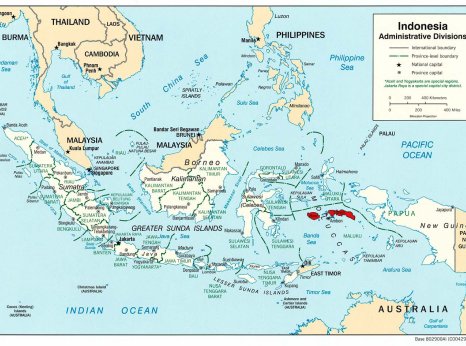Indonesia: Fishermen On Trial After Protesting Encroachment

In 2014, residents of Kwala Langkat Village, Langkat Regency, North Sumatra Province, started to rehabilitate mangrove trees in the area, given that mangrove ecosystem is crucial to support their livelihoods, as majority of the villagers work as fishermen. However, in the years that follow, the conservation work was constrained by the encroachment from palm oil operations in the area. The damages in mangrove ecosystem have affected the work of local fishermen, who now need to sail further into the sea to get to their catchment area, and have also caused tidal flooding into their village. The villagers grew concerned over further erosion, given that the neighbouring Tapak Kuda Village has been submerged due to rising sea level.
In January 2024, a swath of the mangrove forest was further encroached for palm oil operations, drawing protests from the villagers who later reported the encroachment to the North Sumatra Regional Police. Upon receiving the report, police officers visited the forest and confiscated an excavator on 6 February 2024, but took no further actions to investigate the encroachment activities. Due to frustration with the police’s inaction, some local residents demolished a hut in the mangrove forest that had been used by the excavator operators to rest in.
On 22 March 2024, Ilham Mahmudi was reported to the police for his alleged involvement in the demolition of a makeshift wooden hut by a man linked to the encroachment activities. On 18 April 2024, police officers in plain clothes came to his house and arrested Ilham without warrant. Witnesses said that Ilham was tied up and shoved into the car. He was not accompanied by a legal counsel during his first interrogation and later was forced to be represented by a lawyer chosen by the police, before lawyers from Medan Legal Aid Institute (LBH Medan) took over his case on 26 April 2024. Shortly after Ilham was arrested, on the same day, some villagers reportedly hurled stones at a house owned by a man with alleged ties to the encroachment activities, breaking some windows.
Taufik was initially arrested along with another fisherman, Safii, on 11 May 2024, and were accused of alleged involvement in damaging the house on 18 April. They were arrested by the police while fishing for shellfish in a boat on the sea. Plainclothes police officers came with a speedboat and arrested the two without warrants and threatened to shoot them if they refused to follow. They were also not accompanied by a legal counsel during their first interrogation in the afternoon of 11 May, until lawyers from LBH Medan came and signed the power of attorney in the evening of the same day. According to LBH Medan, the CCTV that the house owner submitted to the police as evidence showed that Taufik only stood near the house’s premises while Safii was attempting to prevent the villagers from damaging the house on the day of the incident.
While in the police custody, Taufik was also investigated for his alleged involvement in the demolition of the makeshift hut in the forest and later named suspect in the case. On 4 July 2024, Taufik and Safii’s charges in the 18 April case were dropped and the proceedings were terminated after they signed a settlement letter with the house owner, leading to Safii's release. On the same day, Ilham and Taufik’s trial was set to start, but was postponed as their lawyer was sick. However, on that day, the judges ordered the release of Taufik from pre-trial detention, while Ilham remains in the Langkat Prosecutor's Office detention since his transfer from police custody on 14 June 2024. On 15 July 2024, prosecutors indicted Ilham and Taufik under Article 170 (1) and Article 406 of the Criminal Code on group violence and property damage, respectively. Local NGOs believe the criminal proceedings to be a form of criminalization aimed to stifle the local community’s work in conserving the mangrove forests and defending their right to a clean, healthy, and sustainable environment.
Indonesia has committed to ensuring environmental sustainability and achieving net-zero emissions "by 2060 or sooner" as part of efforts in tackling the climate crisis. However, environmental activists in Indonesia are increasingly harassed and criminalized when state and economic actors perceive their activities as a hindrance to the implementation of development policies. Between January 2019 and June 2024, Amnesty International recorded at least 18 cases of arrests, attacks, and intimidation of environmental activists who defended their rights to land and a healthy environment, with 24 victims.